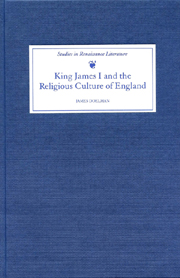AMONG James' earliest poetic endeavours was a versification of Psalm 104, which appeared in Essayes of a Prentise (1584). This psalm is described as “translated out of Tremellius”, and being composed in an eight-line stanza would not have matched any of the common meter tunes then in use with the Psalms:
To Jehova I all my lyfe shall sing,
To sound his Name I ever still shall cair:
It shall be sweit my thinking on that King:
In him I shall be glaid for ever mair:
O let the wicked be into no whair
In earth. O let the sinfull be destroyde.
Blesse him my soule who name Jehova bair:
O blesse him now with notts that are enjoyde.
With this publication James began his life-long interest in psalm versification and the reform of the metrical Psalter used in the churches of England and Scotland. This chapter will consider the attempts, by both James and others, to fashion a new Psalter, and the attempt after his death to promote his version of the Psalms for use in the churches.
Psalm versification was a fairly common poetic exercise at the time, and the 104th, being rich in natural imagery, was a popular choice. James' tutor, George Buchanan, had produced a Latin version of it that had become famous across Europe. Thus, the publication of James' translation of this single psalm was by no means a signal that he intended a complete versification of the Psalter.
